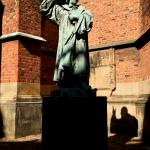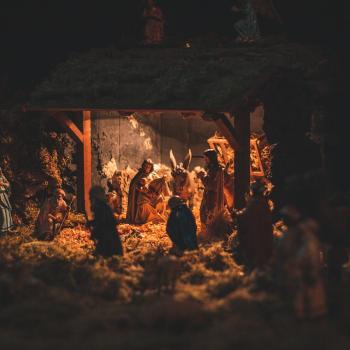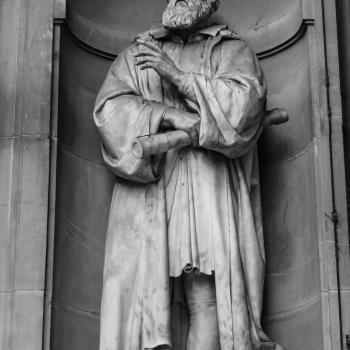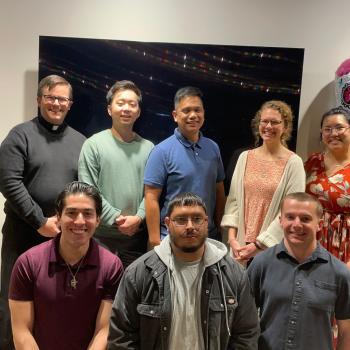Between sophomore and junior year of high school, I transferred from a small Catholic school to a large public school. The faith landscape looked a lot different, and I quickly befriended some of the Evangelical Christians so I would have a safe space for living out my own Christian principles and convictions. I could easily have become a Protestant like them. We shared a lot regarding moral values, but one of my Baptist friends made it his mission to loosen the hold of the Catholic Church on me. We would meet at lunch to debate and discuss the truths of Catholicism. To this day, five of the truths that I often discussed with him stand out in my mind as evidence that the Catholic Church is the truest one.
1. The Pope and Bishops are Successors of Peter and the Apostles
One of my favorite accusations against Catholicism is when someone tries to claim that Constantine invented this “new religion” by calling the Ecumenical Council of Nicaea in 325. While we might balk at the fact that an emperor called together the bishops of the world, there is an important fact to consider. If Constantine was able to call together the bishops and a representative of the Pope, it is because these hierarchies already existed.
We have a list of popes going back to Peter, and while the line of succession of the bishops gets a bit cloudy around the 1500’s with Cardinal Scipione Rebiba, there is no reason to believe that the line does not go all the way back to the Apostles. In fact, we have written testimonies from the Church Fathers back to the very beginnings of the Church. Pope Clement I recognizes his own authority to help clear up a dispute in Corinth in his Letter to the Corinthians in 80 A.D. St. Ignatius of Antioch, a bishop in his own right, refers to the Bishop of Rome as one who presides over all in his Letter to the Romans in the year 110 A.D.
2. The Eucharist Responds Directly to Christ’s Command
Jesus commands his apostles to celebrate the Eucharist when he says, “Do this in memory of me” (Lk. 22:19). The Institution of the Eucharist appears in four passages of the New Testament.
St. Matthew Mt. 26:26-30
St. Mark Mk. 14:22-24
St. Luke Lk. 22:14-20
St. Paul 1 Corinthians 11:23-25
Additionally, we have the “Bread of Life Discourse” in John 6:22-59. The Acts of the Apostles attests to the Eucharistic Celebration being present from the most primitive Christian community (cf. Acts. 2:22). The Didache attests to the Eucharistic Celebration as early as 80 A.D. St. Justin Martyr testifies to the celebration of the Eucharist in his First Apology from as early as 155 A.D. The Eucharist has clearly been of great importance since the early days of Christianity and continues in both the Catholic and Orthodox traditions.
3. The Seven Sacraments All Find Their Foundation in Scripture
All seven sacraments are biblically founded. Baptism, Confirmation, and the Eucharist are part of the rites of initiation. Thus, when adults come into the Church, they receive all three sacraments together. Penance and Anointing of the Sick tend to the faithful who are sick, both spiritually, and physically. Vocations to states of life are expressed through the sacraments of Matrimony and Holy Orders. Each of the sacraments is found in the New Testament and is the reason why we have these seven sacraments and not others. For example, religious life is an important part of Catholic life, yet religious vows have never been considered a sacrament since they only arose a few centuries after Christ.
Baptism (Mt. 28:19)
Confirmation (Jn. 20:22 and Acts 2:1-4)
Eucharist (Mt. 26:26-30, Mk. 14:22-24, Lk. 22:14-20, and 1 Corinthians 11:23-25)
Penance (Jn. 20:23)
Anointing of the Sick (James 5:14)
Matrimony (Mt. 19:6)
Holy Orders (Mt. 10:1-8 and Acts 6:3-6)
4. God Wants Us to Have Tradition and Sacred Scripture
The Catholic Church is the home to Tradition and Sacred Scripture. First off, it is important to understand what the Catholic Church is referring to by saying “Tradition.”
This living transmission, accomplished in the Holy Spirit, is called Tradition, since it is distinct from Sacred Scripture, though closely connected to it. Through Tradition, “the Church, in her doctrine, life and worship, perpetuates and transmits to every generation all that she herself is, all that she believes.” “The sayings of the holy Fathers are a witness to the life-giving presence of this Tradition, showing how its riches are poured out in the practice and life of the Church, in her belief and her prayer” (Catechism of the Catholic Church, 78).
In this context, “Tradition” does not refer to aesthetic or musical “traditions” with which we may be familiar, such as incense, images of saints, Christmas songs, and the like. Rather, “Tradition” is a deposit of faith transmitted through the generations of Christianity. Teachings from the early Church come down to us both orally in Tradition and in writing through Sacred Scripture. So, Tradition and Sacred Scripture have one common source, but two distinct modes of transmission.
5. The Catholic Church Is the True Church Founded by Christ
How do we determine the truth of different faith traditions? There are certainly good Catholics and good Protestants, as well as bad Catholics and bad Protestants. We cannot look merely at the moral behavior of a religion’s adherents to determine the validity of its doctrine.
Protestants tend to accept Sacred Scripture as the sole source of authority regarding divine truths. Anglicans tend to speak of a three-legged stool: Scripture, tradition, and reason. Catholics agree with the Anglicans on that point, although we place greater emphasis on Apostolic Tradition. Fundamentally, though, the greatest difference between the Catholic Church and all other denominations is the Church’s claim to be founded directly by Christ. As Catholics, we take the words of Jesus to Peter at Caesarea Philippi as the moment at which Peter was established as the leader of the first apostles after the death of Jesus.
I say to you, you are Peter, and upon this rock I will build my church, and the gates of the netherworld shall not prevail against it. I will give you the keys to the kingdom of heaven. Whatever you bind on earth shall be bound in heaven; and whatever you loose on earth shall be loosed in heaven (Mt. 16:18-19).
We take these words to be the Biblical foundation for the authority of Peter. It only makes sense that Jesus would leave someone in charge, instead of abandoning his apostles without a leader. This does not make it “Peter’s Church,” and to this day we recognize his successor as “the Vicar of Christ,” meaning he represents Christ, not that he takes the place of Jesus.
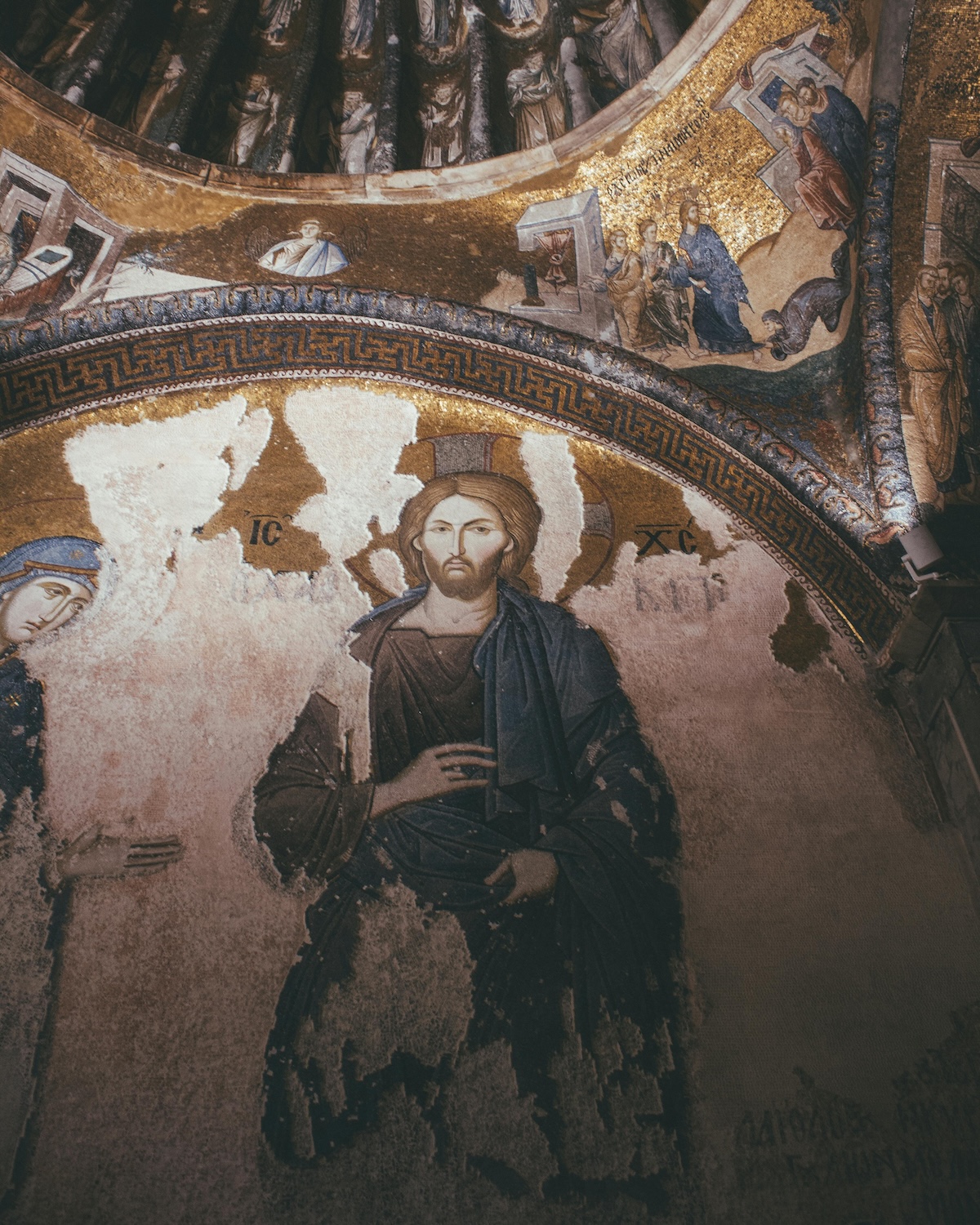
Conclusion
Above I have listed five solid reasons to believe the truth of the Catholic Church. If we want to follow Christ, it is good to follow his explicit desires concerning how he wants us to follow him. His preaching, teaching, and example show that he wants us to follow him in the Catholic Church. Which of these five reasons most appeals to you? Which reason do you most reject or struggle with? Comment below.
This article is part of a series I am writing on the identity of Protestant vs. Catholic Christianity.
In the first article, I discussed the identity of Protestant Christianity. In this second article, I will outline the main reasons I believe the Catholic Church is the true Church Jesus Christ himself founded. Next, in the third article I will outline the way that Protestant Christianity fails in those same areas that the Catholic Church succeeds. Finally, in the fourth article, I will express my admiration for Protestant Christianity and suggest ways that we can help each other grow. I am not trying to be polemic but I do hope to spark some charitable debate.
Subscribe to the newsletter to never miss an article.




